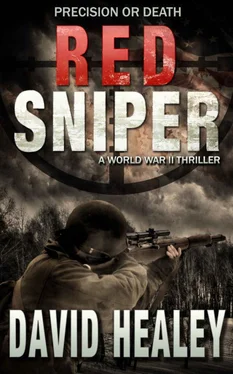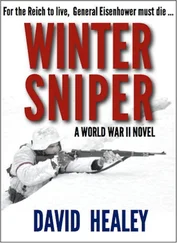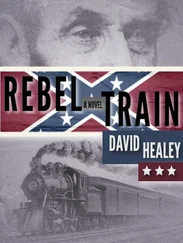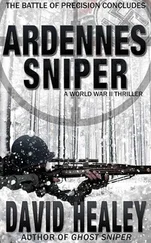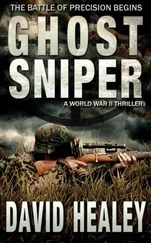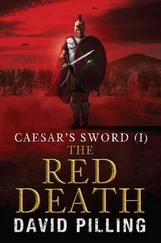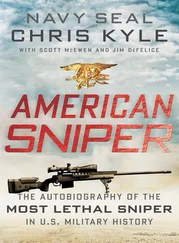Let us learn to appreciate that there will be times when the trees will be bare, and look forward to the time when we may pick the fruit.
—Anton Chekhov
This one’s for mom and all the encouragement she gave her family over the years. We love you and miss you.
Standing in the Oval Office, President Harrison Whitlock IV reached out and took down the brutal horse whip that hung on the wall just to the left of the most famous desk in the world.
Technically, this was a Cossack whip or nagyka , once used by Russian teamsters to control their massive draft horses. It also happened to make a cruel weapon. The whip consisted of a wooden handle that measured eighteen inches in length, covered in braided horsehide that elongated into the whip itself. The nagyka was just about three feet long.
The leather was starting to dry rot and the battered nagyka looked out of place in the formal presidential surroundings that included portraits of George Washington and Abraham Lincoln. In truth, the whip held nothing but bad memories. The president kept it there, however, as a reminder of a time when he had lived in fear of that lash.
More and more these days, Harry Whitlock’s thoughts seemed to return to those times. Just getting old , he thought. Given that the war had ended fifty years before, it was likely that he would be the last president to have served in World War II. Back then, as a very young pilot, his B-17 had been shot down over Germany. One could still catch a glimpse of that young man in the president’s bright blue eyes.
“Sir?” his chief of staff had materialized and caught him reminiscing.
“It’s all right, Bob,” the president said, turning to face his chief of staff and the business of the day, but not before returning the whip to its place on the wall.
The whip served as a reminder that freedom must be defended, and that it comes with a price.
Micajah “Caje” Cole squinted through the eight power telescopic sight of his Springfield rifle, looking for a target. Somewhere in the ruins of a barn high above the road, a German sniper was dug in like a tick on the back of a coonhound. That one enemy soldier had managed to pin down an entire squad that was an element of the advance toward Berlin.
Cole considered his options, none of which were good.
Too far away to get a grenade in there. They had an M1919 machine gun, which might make the sniper keep his head down, but it was ineffectual against the thick stone walls. What they needed was a battering ram. Maybe a tank.
All Cole had was a bullet.
Vaccaro crouched beside Cole, his head well below the stone wall that bordered the road. “Punch his ticket, Hillbilly, and let’s get the hell out of here,” he muttered.
“Ain’t that easy,” Cole replied, his eye playing over the ancient stones of the barn, the empty gaping windows, the slate roof. Where you at? The enemy sniper may as well have been hunkered down inside a fortress. The sniper had chosen his hiding place well, Cole conceded, because the barn had a commanding view of the road below.
Keeping his eye pressed to the telescopic sight, Cole puzzled it out.
So much of surviving as a sniper was about getting inside the other guy’s head. Cole thought about what he would have done in the German’s shoes. He would be back from a window, shooting from deep inside the barn in order to be less of a target. The squad had already poured bullets into the windows until Lieutenant Mulholland called a ceasefire. The only real possibility for the German’s hiding place was the window in the loft, from which the sniper could shoot anything that moved on the road.
But how experienced was this sniper? He doubted that the German pinning them down was much more than a boy with a rifle. In these last weeks of the war, it was considered good enough to give a soldier a week of training, along with a rifle that had a telescopic sight, and call him a sniper. Cole damn well knew it took more than that, especially if the sniper expected to outlast his first day on the job.
Unfortunately, these Germans had the advantage of knowing the ground, and they also had desperation on their side. Making it worse was the fact that the young ones tended to be fanatics. Although the enemy snipers the Americans had been encountering were barely more than teenagers, they were all too deadly.
This sniper had waited until the squad was directly below, and then had picked off two men. Their bodies lay in the muddy road where no one could reach them now.
To Cole, it seemed like a waste, dying so close to the end of the war. Everybody talked about that, how they didn’t want to get killed when the war was sure to end any week now. Nobody wanted to stick his neck out. For the two dead guys, walking down a road in Germany had been their final act of the war.
“This guy is acting like it’s the last stand of the Reich,” Vaccaro muttered.
“I reckon for him, that’s just what it is,” Cole said.
The Germans were done. It didn’t take a general to see that. Germany’s looming defeat was obvious to the lowliest private. At the sight of approaching troops, German civilians came out of their houses, grim faced, waving white handkerchiefs. Since D-Day in June 1944, the Allied troops had pushed steadily across France and Belgium. Cole and Vaccaro had walked nearly every step of the way since June, and for most of those months all they had done was fight. The Germans’ final attempt to turn the tide of the war had come in December 1944 at the Ardennes Forest during what the Americans had labeled The Battle of the Bulge. They had been in the thick of the German breakout attempt in the Ardennes, where their sniper skills had been put to the test again and again.
Now it was April 1945 and it was only a matter of time before Germany was defeated. The Americans were on German soil. Rumors flew about what Hitler was up to, but it was likely that Der Fuhrer and his minions were holed up like rats somewhere in Berlin, probably deep in a bunker with lots of champagne and plenty to eat, hoping for a miracle.
Cole glanced up at the contrails in the sky, wispy fingers of white dragging across the blue dome above as Allied bombers made their way to the next target. The war was happening on the ground, as well as in the sky.
While the Third Reich, for all practical purposes, was over— kaput —not everyone had gotten the message or wanted to believe it. Germans were still being urged to fight to the bitter end, hence the last stands like the one taking place in this barn. Cole had been a hunter and trapper long before he was a soldier, and he knew too well that a cornered and wounded animal was the most dangerous kind.
Cole turned to Vaccaro. “You still got that tent?” he asked.
Vaccaro groaned. “You think he’s dumb enough to fall for that?”
“Unless you got a better idea.”
Vaccaro sighed and dug around in his pack for the tent. In fact, it was a canvas shelter half, or half a tent. It could be buttoned together with another shelter half to form an actual tent. Cole carried the other half strapped to the top of his pack.
“I suppose you want me to use my helmet, too.”
“Mine’s already got one bullet hole in it,” Cole pointed out. A German sniper named Kurt Von Stenger had put it there.
With a dramatic sigh, Vaccaro whipped off his helmet and jammed it onto the sausaged canvas. Through trial and error, the two snipers had found that a helmet on the end of a shelter half, raised above a wall or poked around a tree, looked convincingly like an actual GI’s head. The grungy canvas resembled a grimy face just enough to fool a distant sniper. They had tried using a helmet on a stick in the past, but it wobbled too much. A helmet held in one’s hands had the problem of there being nothing beneath it—and besides that, it wasn’t a good idea to have actual body parts anywhere near a high velocity Mauser round.
Читать дальше
